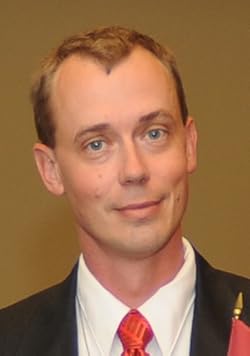Today's guest is Yancy Caruthers, a Iraq war veteran, registered nurse, retired Army Reserve veteran and writer. Today he joins us to talk about Northwest of Eden, his personal account Operation Iraqui Freedom.
__________________________
MJN: Many veterans do not feel confident enough in their
writing skills to write a novel or a memoir. They rely on "advocates"
in the face of fiction writers. Sometimes they choose to share a story with
someone who feels more comfortable with words. As someone who's been through
combat, can you tell the difference between a novel written by an actual
eyewitness and someone who just skillfully reconstructed someone else's
experiences?
YC: I think that would really depend on the skill of the
person doing the reconstructing, and the ability of the eyewitness to recount
experiences. As far as authenticity, my litmus test is when I read some tiny
detail that no one else thinks is important, and it makes me laugh. Chris Kyle,
the author of American Sniper, caught some early criticism because he
wasn't a 'real' author. He was a real Navy SEAL, and that brought a realism to
the story that no one else could have told. With my current project, Medic!,
I am attempting to tell the personal stories of field medics from wars I didn't
attend, in generations when I wasn't yet alive. It's challenging, but I'm
hoping that the reader identifies deeply with those experiences as well. Before
long, there will be no one to tell them firsthand - and at that point what is
written will be all that can be written, at least with that depth.
MJN: I am going to transition into the next question. Do you consider yourself a soldier who writes, a writer who fights or ... a nursing professional who found himself hurled into combat and then wrote about the experience? Which one of your identities is primary? Or do they all complement each other?
YC: I try to avoid labeling myself. In my life, I have been
a truck driver, a soldier, a salesperson, a nurse, an author, and a diplomat. I
'am' none of those things. They are all simply roles that I have played at one
time or another, but this works both ways. Who I am made me good or bad at each
of those professions, but trying to be good at those jobs formed me as a
person. I can be anything I want to be, except NOT me. When I try to do that,
it's painful.
MJN: Do you have an affinity for Ernest Hemingway? He was a medic during WWI. Interestingly, his stories and novels tend to not on the medical aspect or even the combat itself but the dynamic between the comrades-at-arms. Although, I sense that his attitude towards women is different from yours.
YC: I can't say as he's an idol or anything, as I understand
he wasn't even a nice guy. I may be one of few people who read "For Whom
the Bell Tolls" after I had experienced war. I cried. The man's lifetime
of pain is there in his words, for those who care to look.
MJN: Your choice of headshot is very interesting. You have that neutral gentle-mannered look. I'm sure people have told you that you look like Jude Law. Just going by the headshot alone, I would say "This guy can be anything." You are not wearing a uniform or the scrubs. And you know how people are, always inclined to label and categorize. Was there a reason behind choosing a neutral headshot that was nonspecific to any line of work?
YC: I never got Jude Law, but Steve Buscemi is the
comparison people make when they see the live version. That headshot was cut
from a photo of me standing next to an Assistant Secretary of State the day I
found out I was being assigned as a vice consul to Peru. I liked the look of
it.
MJN: I know that your mission is to describe your experiences without passing judgment. And yet, I am sure that people have asked you question "What do you think about Bush?" and "Do you think it was a waste of time?" How do you handle that kind of pressure from your readers?
YC: Before we left, our unit has a deployment ceremony. I
was to give a few opening remarks to set up the commander's speech. In those
remarks, I acknowledged that the war itself was controversial, that people
wouldn't always agree or understand why we were there. Our job had nothing to
do with that. None of us could change the fact that we were involved in Iraq.
Our unit's mission was to mitigate the damage that war causes. We were there to
save lives, one at a time. In that respect, we helped a lot of people, and I am
proud of that. History will judge our country's involvement there harshly, and
much of what they have to say is based on events that have yet to unfold. A
reader is free to say that we (as an Army) shouldn't have been there - many of
my soldiers would agree - but that has nothing to do with reading about what it
was like from the point of view of an individual soldier.

No comments:
Post a Comment